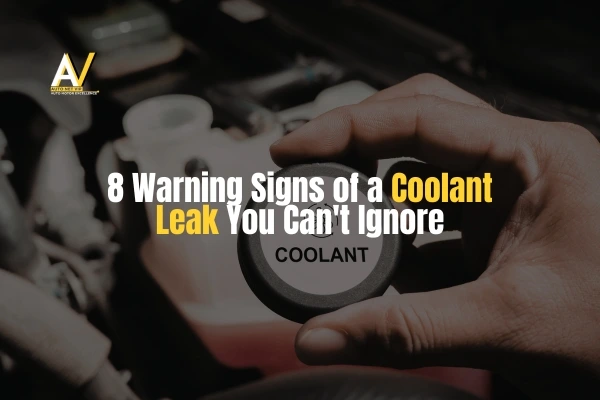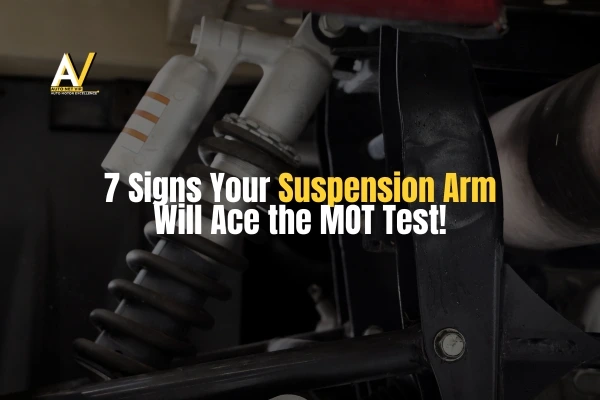Auto Expert Advice
Unlock Your Car’s Potential: Driving & Vehicle Guides from AutoNet VIP Garage
Welcome to AutoNet VIP Garage’s Driving & Vehicle Guides – your definitive source for expert automotive knowledge tailored for UK car owners. From essential vehicle maintenance schedules to practical driving safety tips and insights into automotive technology, our guides are crafted by our skilled team at your trusted Harlow garage. We empower you to make informed decisions about your car’s health, understand common car
Ultimate Guide to Summer Car Maintenance in the UK: Avoid Breakdowns & Stay Safe This Season!
As the sun makes a welcome appearance across the United Kingdom, bringing with it the promise of holidays, road trips, and long, warm days, many of us eagerly plan our summer adventures. But did you know that summer is actually the busiest time of year for car breakdowns in the UK? Contrary to popular belief that winter is the hardest on our vehicles, the intense summer heat, coupled with increased traffic and longer journeys, puts immense strain on your car’s vital systems.
With motoring associations reporting over 5,000 breakdowns a week in July and August alone, your cherished vehicle could be at risk if you don’t take the right precautions. A recent 2023 RAC survey even revealed that nearly 45% of summer holiday breakdowns could have been prevented with simple pre-journey checks. Don’t let a preventable issue derail your eagerly anticipated summer plans!
This comprehensive guide to summer car maintenance is designed specifically for UK drivers, offering expert tips and actionable advice to help you avoid a roadside disaster. Plus, we’ll tell you where to find trusted automotive support right here in Harlow.
At AutoNet VIP, we don’t just fix cars — we build trust. Every vehicle we service reflects our 40+ years of dedication to quality, reliability, and honest care.
Lucian
Owner
1. Battery Health: A Summer Essential, Not Just a Winter Worry
When we think of a flat car battery, our minds often drift to frosty winter mornings. However, extreme summer heat is a major culprit in battery degradation, often more damaging than the cold over time. High temperatures accelerate the chemical reactions inside your battery, causing the internal fluid (electrolyte) to evaporate faster. This leads to corrosion of the internal components and a significant reduction in battery lifespan. An older battery, especially one over three years old, is particularly vulnerable.
Signs your battery might be struggling:
- Your engine cranks slowly or takes longer than usual to start.
- Dashboard warning lights flicker or dim when you start the car.
- Your headlights appear dim even when the engine is running.
- Corrosion build-up around the battery terminals (white or blue powdery substance).
Top Tips for Summer Battery Care:
- Regular Battery Checks: Have your battery tested by a professional, especially if it’s over three years old. A battery health check can identify issues before they leave you stranded. AutoNet VIP Garage in Harlow offers thorough battery diagnostics.
- Avoid Short Journeys: Frequent short trips (like popping to the shops around the corner) don’t allow your alternator enough time to fully recharge the battery. Consider walking or cycling for these short distances – it’s better for your health and your car!
- Clean Terminals: Keep battery terminals clean and free from corrosion. A build-up can hinder current flow and reduce efficiency
- Park in the Shade: Whenever possible, park your car in the shade to protect the battery from direct sunlight and excessive heat, which can accelerate fluid evaporation.
According to recent data, battery-related faults accounted for over 18% of summer roadside callouts in the UK in 2023. Don’t become another statistic!
2. Tyre Safety in Hot UK Weather: Preventing Blowouts
The tarmac on UK roads can get surprisingly hot during summer, and these high temperatures can wreak havoc on your car tyres. Hot roads cause the air inside your tyres to expand, leading to increased pressure. While tyres are designed to withstand some pressure fluctuation, over-inflation combined with intense heat significantly increases the risk of a dangerous tyre blowout. Furthermore, prolonged exposure to direct sunlight can cause the tyre rubber to dry out, crack, and degrade, compromising their structural integrity and grip.
Essential Tyre Checks for Summer Driving:
- Tread Depth: The legal minimum tyre tread depth in the UK is 1.6mm across the central three-quarters of the tyre’s breadth. However, experts recommend considering replacement at 3mm, as braking distances significantly increase below this point, especially on hot or wet surfaces. Use a 20p coin to quickly check: if the outer band of the coin is visible, your tyres might be nearing the legal limit.
- Tyre Pressure: Check your tyre pressure regularly, ideally once a week and always before a long journey. This is crucial in summer as pressure can increase with heat. Always check tyres when they are “cold” – meaning the car hasn’t been driven for at least a few hours or more than a mile or two. Adjusting pressure when tyres are hot will give you an inaccurate reading. You’ll find your vehicle’s recommended tyre pressures in your owner’s manual, on a sticker inside the driver’s door, or within the fuel filler cap. Remember that recommended pressures can vary based on the load you’re carrying.
- Condition Check: Visually inspect your tyres for any signs of damage, such as cuts, bulges, cracks, or embedded objects. These can worsen with heat and lead to failure.
- Valve Caps: Ensure all tyre valve caps are present and secure. They help maintain pressure and keep dirt out.
- Spare Tyre: Don’t forget your spare tyre (if you have one)! Check its pressure and condition too. If it’s mounted externally (e.g., on the back of an SUV), consider moving it into the boot to protect it from direct sunlight, which can cause premature aging.
A 2023 DVSA study found that 12.1% of MOT failures were due to tyre defects, many of which could have been prevented with simple, regular checks. Don’t let your tyres be a weak link in your summer safety.
3. Keep an Eye on Your Fluids: The Lifeline of Your Engine
Just like you need to stay hydrated in the summer heat, your engine relies on a healthy supply of fluids to prevent overheating – a leading cause of summer breakdowns. Each fluid plays a critical role in your car’s health.
- Engine Coolant (Antifreeze): This is perhaps the most critical fluid in summer. Coolant (a mixture of water and antifreeze) circulates through your engine, absorbing excess heat and dissipating it through the radiator. Low coolant levels or an incorrect mix can quickly lead to your engine overheating. Don’t just top up with water; tap water contains minerals that can cause corrosion and deposits in your cooling system. Always use the specific type of coolant recommended by your manufacturer (often indicated by a colour, e.g., blue, pink, red) and ensure it’s a proper mix with antifreeze to prevent damage when temperatures fluctuate. Coolant should ideally be changed every 2 to 5 years, depending on your vehicle. Signs of low coolant or an issue include a rapidly rising temperature gauge, steam from under the bonnet, or a sweet smell.
- Engine Oil: Your engine oil lubricates moving parts, reduces friction, and helps dissipate heat. Check your oil level regularly using the dipstick (when the engine is cold and on level ground). Low oil can lead to increased friction, greater heat build-up, and severe engine damage. Ensure you’re using the correct oil type and viscosity for your vehicle as specified in your owner’s manual.
- Screen Wash: While not directly related to engine cooling, clear visibility is paramount for safety. During summer, roads can be dusty, and insects can quickly obscure your windscreen. Ensure your screen wash reservoir is topped up with a good quality fluid, ideally one with insect remover properties for those long motorway drives.
- Brake Fluid: This hygroscopic fluid absorbs moisture over time, which can lower its boiling point. In heavy summer traffic or during prolonged braking, this can lead to “brake fade,” reducing braking effectiveness. Brake fluid should typically be replaced every two years.
- Power Steering Fluid: If your car has a hydraulic power steering system, check this fluid level. Low fluid can lead to whining noises and stiffer steering.
Making these simple fluid checks a regular part of your routine can save you from costly repairs and keep your summer journey on track.
4. Route Planning and Fuel/Charging: More Than Just Picking a Playlist
Smart journey planning is vital, whether you drive a petrol, diesel, or electric vehicle (EV).
- For EV Drivers: The UK’s EV charging infrastructure is growing rapidly, but planning is still key, especially for longer holiday routes. Use reliable apps like Zap-Map, Chargemap, ChargePoint, or Octopus Electroverse to locate charging stations in advance. Consider charger types (rapid, fast, slow), availability, and potential peak usage times at popular holiday destinations. Planning your charging stops ensures you maintain range confidence and avoid unnecessary detours or waits.
- For All Drivers (Petrol, Diesel, EV): Always know where the nearest service stations are along your route, particularly if you’re venturing through remote or rural areas of the UK. Traffic jams are common in summer; having a mental note of fuel stops or rest areas can ease anxiety. Factor in extra time for potential delays due to increased holiday traffic.
5. Check Your Air Conditioning Before You Fry
Imagine being stuck in traffic on a hot day on the M25 or heading to the coast, and your car air conditioning fails. Not fun at all! Your car’s A/C system isn’t just for comfort; it also aids in demisting windows quickly on humid days and filters out pollen and pollutants, improving cabin air quality.
Why A/C systems struggle in summer:
- Refrigerant Leaks: Over winter, especially if not used regularly, refrigerant gas (the cooling agent) can slowly leak from the system. This gradual loss means your A/C won’t cool as effectively.
- Lack of Lubrication: The refrigerant gas carries a lubricant that keeps the A/C compressor seals healthy. If the system isn’t used, these seals can dry out, leading to leaks and component failure.
Keep your A/C in top shape:
- Regular Usage: Switch on your A/C every couple of weeks, even in cooler months, for at least 10-15 minutes. This circulates the refrigerant and lubricant, keeping seals supple and preventing system deterioration.
- Listen and Feel: If your A/C isn’t cooling like it used to, or you hear unusual noises when it’s on, it’s a clear sign it needs attention.
- Professional Re-Gas Service: Most manufacturers recommend an air con re-gas service every two years. This process removes old refrigerant, checks for leaks, and refills the system to optimal levels. A quick re-gas can restore cooling performance, improve fuel efficiency (as a struggling system makes the engine work harder), and prevent more costly repairs down the line. Autonet VIP Garage offers professional air con diagnostics and re-gassing in Harlow.
- Anti-Bacterial Clean: If you notice a musty or damp smell when your A/C is on, it could indicate a build-up of bacteria and mould within the system. An anti-bacterial clean can resolve this, improving cabin air quality.
What to Pack in Your Summer Breakdown Kit: Be Prepared for UK Roads
Breakdowns don’t wait for a convenient moment, and being prepared can make a stressful situation much safer. While not all items are legal requirements in the UK, they are highly recommended by motoring organisations. Build your own kit or purchase a pre-made one.
Minimum Essentials for UK Travel:
- High-vis vest: Crucial for visibility, especially if you break down at dusk, dawn, or in poor weather. Keep it accessible (not in the boot). If travelling with passengers, consider vests for everyone.
- Warning triangle: While not legally required in the UK (except when driving in Europe), it’s highly recommended. Place it at least 45 metres (147 feet) behind your vehicle on a regular road or dual carriageway to warn approaching traffic. NEVER use on a motorway hard shoulder – it’s too dangerous to retrieve.
- First aid kit: A compact kit with plasters, antiseptic wipes, bandages, and pain relievers can be invaluable for minor injuries.
- Torch (with spare batteries/fully charged): Essential for checking under the bonnet or navigating if a breakdown occurs in low light. Don’t rely on your phone’s battery.
- Water (plenty of it!): Crucial for hydration, especially on hot days when waiting for recovery.
- Snacks: Non-perishable energy bars or biscuits can keep hunger at bay.
- Phone charger/power bank: Your mobile phone is your lifeline to recovery services. Ensure it’s charged or have a way to charge it.
Bonus Essentials for UK Road Trips:
- Tow rope: Handy for light recovery situations (but only if you know how to use it safely).
- Booster cables (jump leads): For flat batteries, but ensure you know the correct procedure to use them.
- Foot pump with pressure gauge: To re-inflate a slow puncture or adjust tyre pressure.
- Extra washer fluid and coolant: For quick top-ups.
- Hi-grip gloves: Protect your hands if you need to check things under the bonnet.
- Blanket/warm layers: Even in summer, evenings can get cool, and waiting for recovery can be a long process. A foil emergency blanket is compact and effective.
- Copies of your insurance and breakdown cover details: Keep them easily accessible (paper or saved to your phone).
- Tyre repair kit: If your car doesn’t have a spare wheel.
- Empty fuel canister: For emergencies if you run out of fuel in a safe location.
Remember: If you break down on a motorway in the UK, activate your hazard lights, exit the vehicle from the passenger side, and wait behind the safety barrier, well away from traffic. Use a motorway emergency phone if one is available, or call your breakdown provider.
Time to Give Your Car a Summer Health Check?
Don’t wait until you’re stuck on the hard shoulder, overheating, or dealing with a flat tyre on your summer holiday. Proactive car maintenance is key to a stress-free summer driving experience in the UK.
If your car needs a thorough battery check, a professional air-con service, a comprehensive tyre inspection, or essential fluid top-ups – get peace of mind before you travel.
Conclusion
Book your essential summer car service today with the trusted experts at AutoNet VIP Garage in Harlow.
At AutoNet VIP Garage, our experienced technicians understand the unique demands of summer driving in the UK. We offer a full range of services including:
- Full diagnostics to pinpoint any underlying issues.
- Air con re-gassing and servicing to keep you cool and comfortable.
- Thorough tyre checks and replacements for optimal safety.
- Battery testing and replacements to ensure reliable starts.
- All essential fluid level checks and top-ups.
- And much more, ensuring your vehicle is perfectly prepared for any summer adventure.




